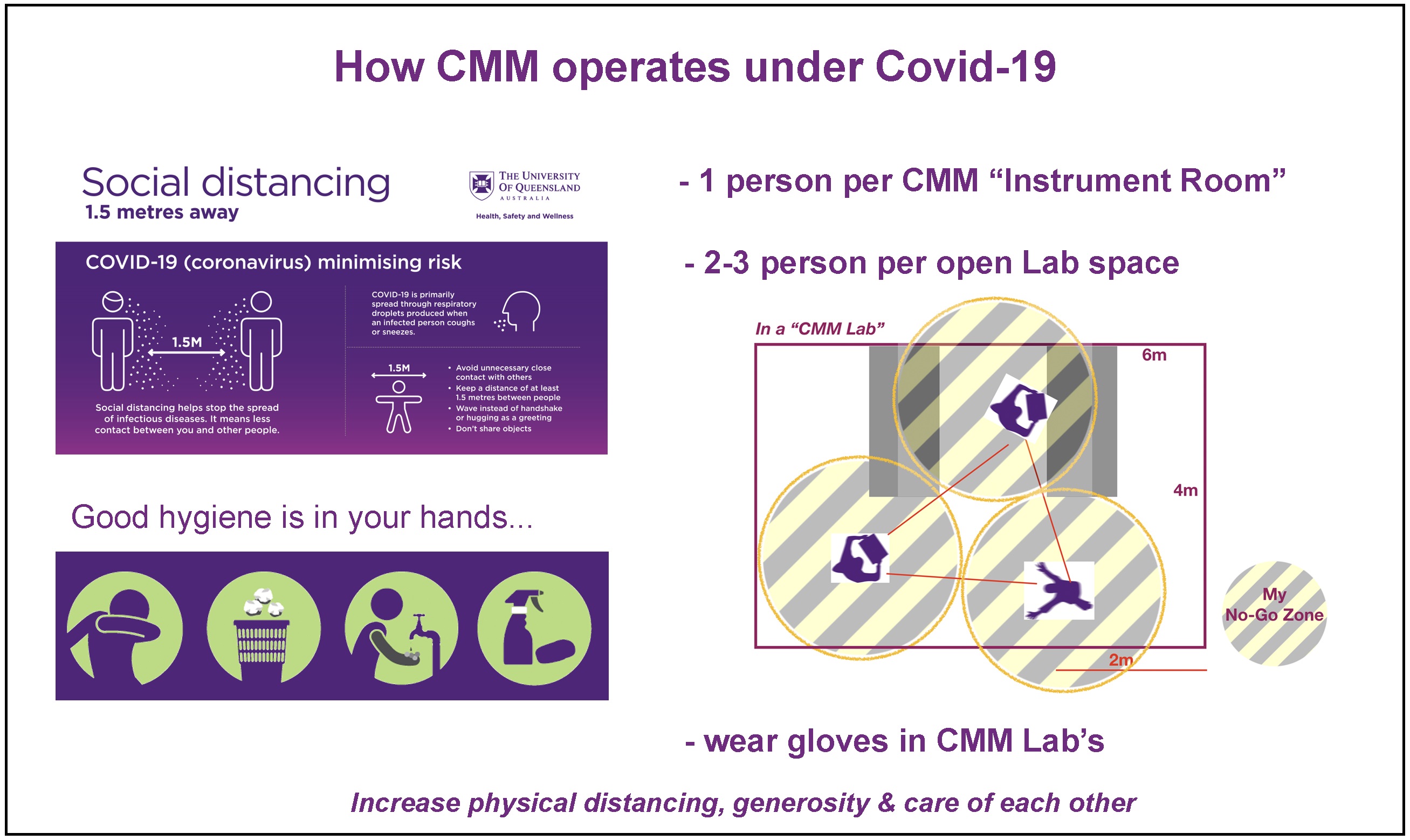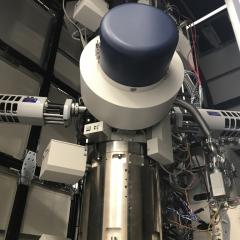As the COVID-19 situation has developed, CMM has been engaged in various preparation initiatives, such as operating with reduced staff on site and keeping essential services running to allow our current clients to keep doing their work in the labs.
The University currently operates under the Covid-19 Level 3 “closure scenario”. What this means is summarised below.
In Brief:
- St. Lucia campus is open with restrictions: online teaching and training, research continues on campus but is limited, staff to work from home unless being at work is deemed “critical” to operations and agreed with their supervisor
- CMM is therefore open for trained users with access rights and instrument licences on specific instruments
- CMM does not offer at the moment 1:1 training for “novice clients”. Our block training courses are on hold for new clients – we are working on ways to deliver such training on-line, similar to the lecturing experience that students have but with remote access to instruments.
As a current client, you are welcome to make bookings and use the equipment – here are our simple rules:
- If you don’t feel well – don’t come onto campus and to the CMM labs (it’s for your safety, our staff and your peers safety as well as the instruments as they can get damaged with the standard disinfection protocols)
- Coordinate with your supervisor if you need to do work at CMM
- Before you come to CMM make sure you have the Security App “Safe Zone” on your mobile phone and ideally the COVIDSafe app from the Australian government
- Get in contact with the CMM Lab-Manager when you come back to work at CMM for the first time and keep staff informed that you will be coming.
- Our rules at CMM to make the place a safe area to work are:
- On entering/exiting CMM, hands need to be thoroughly washed or sanitised.
- Gloves must be worn at all times.
- All must sign in/out of CMM labs.
- Clients must provide coats and safety glasses if needed for their work.
- One person per microscope room or as directed by CMM staff.
- All equipment, chairs, benches etc must be wiped down with the provided alcohol wipes or ethanol spray before and after use.
- Social Distancing must be adhered to at all times.
On the 26th March CMM stopped accepting new projects. In exceptional circumstances, projects fitting one of the critical research criteria might be considered if resources are available.
Definition for critical research
This definition is provided as a guide to help identify research activities that are critical. Please apply your professional judgement and understanding of your objectives, obligations and operations to make your decision. In this circumstance, please contact Professor Roger Wepf directly via e-mail.
- Covid-19 related research (vaccine, drug and treatment development)
- Live organisms and cell cultures requiring care and maintenance
- Valuable/critical (non-live) experiments/equipment that require maintenance or hands on input, or protocols that need to continue
- Time-critical experiments/observations; where either the opportunity to conduct, the experiment will be missed into the foreseeable future or the individual conducting the experiment/observations has some time-critical component to their appointment
- Contractual commitments to deliver consultancy/research outcomes that cannot be varied with the partner organisation
We are working with IT-Services and UQ/RCC to expand our virtual data processing environment, which will allow clients and researchers to get access to their data and process them under virtual desktops (CVL’s). We will keep you informed once these capabilities become available.
Unless otherwise stated in future updates and subject to the policy and decision making processes of UQ, CMM will endeavour to provide the best possible support services for essential and governmental work.
We encourage our community and users to make contact via cmm@uq.edu.au should you have any questions or concerns.




